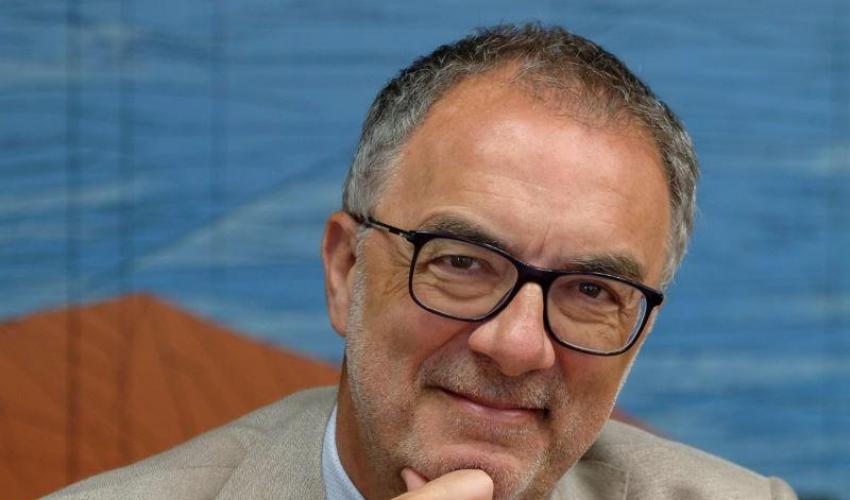
We Will Do Better If We Know How to Network
TO BETTER MANAGE EFFICIENCY IN THE USE OF RESOURCES AND OPERATIONAL RELIABILITY, THE KEY IS LEAN MANAGEMENT. BOCCONI GRADUATE STEFANO MANFREDI, GENERAL MANAGER OF THE NATIONAL CANCER INSTITUTE OF MILAN, TELLS US WHYIn many areas there is a before and an after the pandemic. Even more so in healthcare, where the epidemic has posed unprecedented challenges to systems, professionalism, organizations and managers. Will the sector know how to come out of it better? "Yes, if we are able to clearly deal with a wide-ranging reflection on what has happened and what needs to be changed," says Stefano Manfredi, health manager trained in the courses and Master programs of the SDA and today GM of the National Cancer Institute of Milan. "What happened in Lombardy, for example, needs to be evaluated in order to mitigate the centrality of hospitals in the system in favor of the creation of a more branched network. In the same way, we must no longer confuse excellence with specialization: you can provide quality integrated home care, displaying excellence, but still have an inefficient heart surgery center.
Proximity and centralization are two of the dynamics that are redesigning the distribution of healthcare on the territory, how is the right balance found?
Some functions must be concentrated, others distributed throughout the territory and brought closer to the citizens. It is right to close the surgeries with a few interventions, but at the same time we have to open more therapy points on the territory. Let me explain: at the cancer institute you can carry out the surgery and design the treatment path, but chemotherapy must be done as close as possible to your home. This does not mean creating an A league and a B league medicine or surgery, but simply one of greater and one of lesser complexity.
Are the hyper-efficiency increasingly required of public structures and operational reliability objectives in contradiction in your opinion?
In this case too it is necessary to find a balance between the optimization of the use of resources, which is a very different concept from hyper-efficiency, and operational safety or reliability. One of the themes of the future will be how to best use resources to ensure the creation of value for patients, a result that is not achieved with continuous cuts across the board but by improving the care processes and patient paths and therefore involving operators at all levels. A greater value in the perceived outcome does not go through doing more or doing it more quickly but sometimes, on the contrary, reducing redundant or useless activities and focusing on those with added value. This lean management process gives even greater motivation to the staff as they no longer feel like a simple performer but a protagonist in defining change. Naturally, this is not just an operational change, but a cultural one, which passes through the overcoming of barriers between departments, between services and between professionals.
How much effort toward change is it legitimate to ask of health professionals already stressed by the pandemic?
I often hear that in Italy we have few doctors, but this is not true, the average is in line with the European one. Rather, we have few nurses and few non-medical health professionals. I believe that first of all we need a transfer of competences, as they do in many other countries, and for this reason we ask doctors and nurses to be available to welcome some changes. Wouldn't it also work better in the public sector if, for example, the beds of a ward were managed by a staff of the chief nurse capable of having all the different departments under control rather than just the Heads of Department? The same professionals could devote more time to the activities of their exclusive competence. In short, at the base of everything there must be the willingness to have a dialogue and listen to patients and colleagues, and the example must start from the Strategic Departments.
Is what has happened in the last few months something you felt prepared to deal with as a manager?
From my studies at Bocconi I learned above all the importance of the method through which there are no insurmountable problems, not even unpredictable ones. Indeed, this emergency has really shown us that we can decide a lot, and well, even in a short time and in conditions of uncertainty. However, we must stop thinking vertically and reason horizontally. As patients we already do this, judging every aspect of a hospital, from admission to the canteen, from cleaning to the professionalism of the nurses, while as doctors or managers we have continued to organize ourselves in watertight compartments. This emergency forced us to involve all the professionals, all levels of the organization, in a continuous exchange that could systematize the various knowledge. From here we can start again.
A graduate in Political Science in Genoa, Stefano Manfredi came to work in healthcare after a few years in the banking sector. "Those were the roaring years of management control," recalls the current general managerof the National Cancer Institute in Milan. "The experience in healthcare has opened up a new world to me that I did not know, but which immediately interested me, so much so that I decided to enroll at SDA, first in the course in health management and then in the executive Master in management of healthcare companies". Since then Manfredi has risen through all levels of his career, holding the roles of administrative director and general manager in various local ASSLs, always remaining in the public.
by Emanuele Elli
